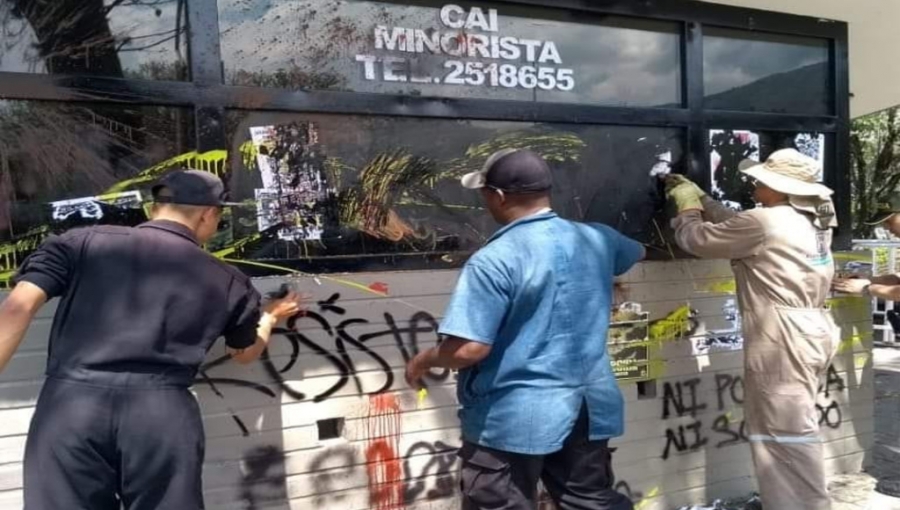Mostly Peaceful Protests Show Medellin Once Again Outshines Bogota, Rest of Colombia

Despite isolated acts of vandalism in Medellin by small groups of extreme left-wingers who attacked a few municipal bus stations, police stations, bank offices and a hotel during a January 21 protest march here, Medellin mainly demonstrated once again that peaceful protest is respected by nearly all its citizens.
Contrast that to Bogota where left-wing extremists once again viciously attacked and injured police, as shown in this video taken by witnesses: https://www.facebook.com/GuardianesdeAntioquiaMedellin1/videos/863143347459656/UzpfSTEwMDA0MDQzNDEzMTYzOTpWSzoyNDEwODMzODIyMzU0ODEy/
In all, six policemen were injured by “encapuchados” (hooded left-wing extremists) in Bogota – down in number from the dozens of police injured and hospitalized during protest marches last November, where three other persons died as a result of police shooting back at “encapuchados” (hooded extremists) who were throwing bombs and rocks, gang-beating anti-riot police and attempting to burn and destroy private businesses and public facilities.
Ironically, newly elected Bogota Mayor Claudia Lopez – who had campaigned on a populist promise to block the use of the “ESMAD” anti-riot police – embarrassingly conceded that she likewise had to deploy these troops to stop senseless violence and road-blockings by extremist protesters.
New Medellin Mayor Daniel Quintero – who similarly had criticized ESMAD in his election campaign – likewise deployed anti-riot police when violent actors began attacking buildings and bus stations, as well as threatening peaceful citizens in Medellin.
Meanwhile, Colombia President Ivan Duque on January 21 once again publicly endorsed the constitutional right of Colombian citizens to organize and carry-out peaceful protest marches. He also cited the new and continuing dialogs between his government and proactive citizen delegates who are pushing further reforms to public education, the national health system, cultural initiatives, pensions and work rules — all by democratic means rather than by violence.
However, the politically radical “Comite Nacional de Paro” (the national protest-march organizers) rejected President Duque’s invitation to participate in the new talks, instead pushing protest actions and anti-democratic, non-negotiable demands, which inevitably led to more violence and extremist hatred.
This group published a list of 104 demands including a 100% nationalization of the partly-privatized Ecopetrol oil company (which would require billions of dollars of new government expenses in already heavily debt-ridden Colombia); conversion of relatively efficient private-sector services such as telecom and internet to state ownership; a new law that would ban oil production via “fracking” (such a ban ironically would guarantee an accelerated demise of Ecopetrol and all its union jobs as conventional oil is rapidly disappearing in Colombia); a dismantling of anti-riot police (ensuring even more violence by extremists); and a politically biased dismantling of criminal “paramilitary” groups (but not any dismantling of the extreme left wing narco-terrorist ELN group, which instead would be favored by unilateral “peace” talks — while ignoring continual ELN violence).
The protest group also demands that Colombia ban spraying of herbicides that kill the coca plant — the backbone for cocaine narco-trafficking by criminal extremist groups including ELN.
Ironically, Colombia has seen a huge increase in coca and cocaine production – triggering the inevitable rise in violence by narco-gangster groups including ex-FARC and ELN — as a result of a decision by the former President Santos administration to concede to demands by these criminal groups to ban the use of aerial spraying.
However, President Duque is pushing for a gradual return of such spraying — hence infuriating the extreme left and other criminal groups here.
















